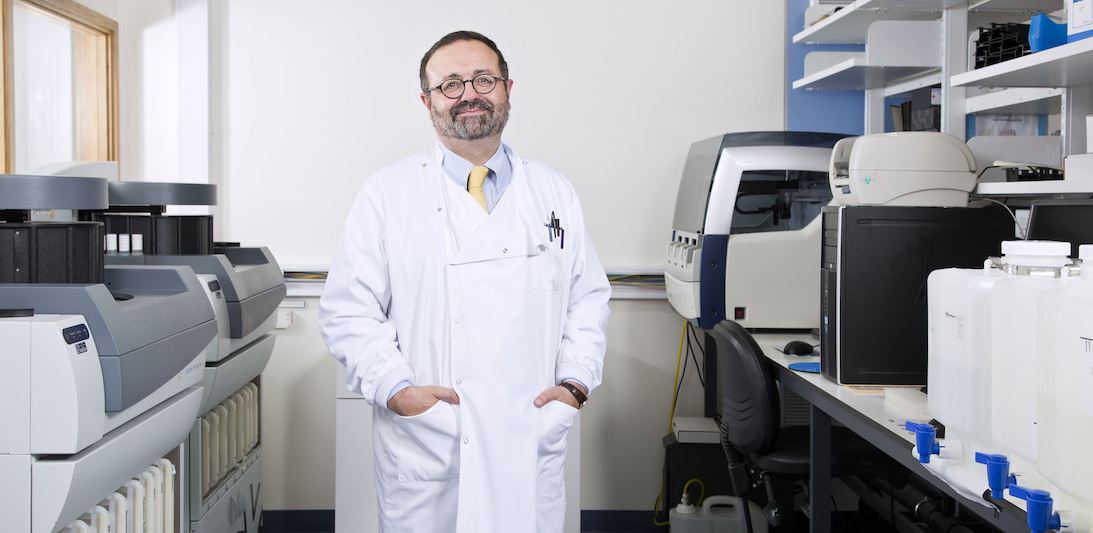QUEEN'S RESEARCH HIGHLIGHTS INEQUALITY FOR QUARTER OF CANCER PATIENTS 
27 September 2017
Despite advances in health care providing cancer patients with a better quality of life, a study published in the British Journal of Cancer by Queen’s and the Belfast Trust highlights that 25% of all cancer patients – those known to have a ‘rare’ form of cancer – will not benefit from improvements in medical care, mainly due to the way research funding is prioritised.
The study entitled ‘Rare cancers: the greatest inequality in cancer research and oncology treatment’ points out that uncommon cancers comprise a staggering 198 varieties, often an independent cancer with a low frequency or a rare subtype of a more common type.
Rare cancers by their very nature are much less commonly studied, making improvements in treatments for a number of cancers seem unachievable.
Over the last decade, oncologists have focused on a genomic or personalised medicine approach to treating cancers, which has led to a transformation in the treatment of a number of common cancers. This has resulted in improved diagnostics, the provision of more targeted treatment to patients and an increased knowledge of biomarkers, which has a large number of potential applications in oncology such as screening, prognostics and prediction of response to treatment.
A non-existence of clinical trials in rare cancers is inextricably linked to a lack of scientific evidence, which can be attributed to difficulties in accessing funding. Applications for funding are often assessed using standard criteria, which are difficult to achieve in rare cancers.
Professor Manuel Salto-Tellez (above), Chair and Professor of Molecular Pathology at Queen’s and one of the authors of this latest study, highlights the challenge with this approach: “The preliminary evidence that we usually present when applying for funding in ‘common’ cancers is very difficult to obtain in ‘rare’ cancer, or it simply does not exist.”
One solution is to share data on a global scale through establishing multi-national consortia. Queen’s researcher and Belfast Trust oncologist, Professor Richard Wilson, leads one of these consortia through the International Rare Cancer Initiative: “We shouldn’t expect to see the same level of detail for research proposals for rare cancers as we do for common cancers, where there is often a multitude of existing evidence and data available,” said Professor Wilson.
“Rare cancers desperately need funding to be able to produce the necessary preliminary data and evidence, helping us to get out of the current ‘Catch 22’ situation. A shift in direction is needed if we are to make advances in the area of rare cancers, which affects millions of cancer patients around the world,” he added.
Professor Salto-Tellez went on: “Whilst overall rare cancers are lagging behind in research advances, thanks to generous funding from private donors The Sean Crummey Foundation and the Tom Simms Memorial Fund, we have been able to develop an active research group specifically looking at rare cancers here at Queen’s.
“Through this work we have already started to generate important developments in rare cancer diagnostics. It’s important that we build on this knowledge and expertise, which requires further funding if we are to pave the way in the area of rare cancers, which affects a quarter of all cancer patients.”
Media enquiries to Suzanne Lagan on tel: +44 (0)28 9097 5292.
Back to Main News
Top of Page